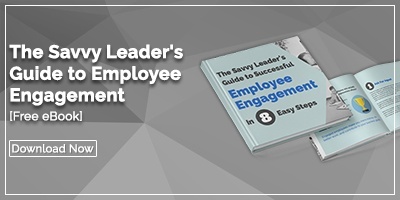 Millennials. The generation everybody loves to hate. The generation of cat videos, duck face selfies, and trendy eyebrows. Made up words like “on fleek” and “bae” might be making their way into your break rooms, and I’m willing to bet that they’re making you crazy. I generally consider myself to be a part of the younger crowd here at KaiNexus, and am technically a millennial, but even I have a colleague that frequently uses words and acronyms that I have to Google before responding. The struggle is real (see what I did there?).
Millennials. The generation everybody loves to hate. The generation of cat videos, duck face selfies, and trendy eyebrows. Made up words like “on fleek” and “bae” might be making their way into your break rooms, and I’m willing to bet that they’re making you crazy. I generally consider myself to be a part of the younger crowd here at KaiNexus, and am technically a millennial, but even I have a colleague that frequently uses words and acronyms that I have to Google before responding. The struggle is real (see what I did there?).
Gen Xers are particularly irritated by millennials, often resenting the changes they demand in the workplace and finding their expectations and behaviors unrealistic and unprofessional.
In this post, we’re going to take a look at the value millennials bring to our companies, and what we need to do to keep them around. Because frankly, we need them.
- Communication
Millennials thrive on communication. Whether it’s chatting with colleagues throughout the day, staying connected with the rest of the world 24/7, or engaging in back-and-forth with their bosses, they like to share ideas and learn from others. This is a particularly valuable trait in an improvement culture, because when a millennial has a good idea, you can bet they’ll share it with other people. They welcome feedback from others on their ideas, and value an open line of communication across silos and up the chain of command in their organizations. These people break down barriers with increased communication. - Collaboration
Tied in with their communication skills is the tendency for millennials to be collaborative. This is the generation that grew up working in groups in class, in after school activities, and at home. They often have their best ideas as part of a team, and are quick to pull others into the process. Millennials make great team leaders on improvement initiatives because of their innate tendency to collaborate to find the best possible outcomes. - Innovation
When you’ve spent your whole life being told to “think outside the box” like millennials have, it’s a given that your brain will be attuned to noticing problems in the status quo and coming up with innovative solutions. Millennials are creative and resourceful, and pride themselves in their ability to apply their creativity to their work. - Tech-Savvy
This is probably the most obvious descriptor on the list. Millennials grew up with technology embedded in every aspect of their lives, unlike any prior generation. They’re quick to adopt new technologies, and can pretty effortlessly learn new tools on the fly. This makes them an invaluable resource when introducing a continuous improvement platform to the organization. Millennials will be quick to pick it up as your early adopters, and take the initiative to help spread it to less tech-savvy staff. - Adaptable
Millennials don’t just accept change; they embrace it. They’re an adaptable group that quickly pivots to incorporate new ideas into their work, with a lower resistance to change than is typically found in the workplace. The catch here is that they expect to be treated as equals and informed of the reasons for change (and given the chance to weigh in on it), but once you’ve got them on board, they’re happy to adjust their status quo.
Alright, so now that we’ve looked at a bit of the value millennials bring to the workplace, let’s talk about how to keep them. Millennials are known for changing jobs more often than previous generations, which can be frustrating when you’ve invested time and resources into training and developing them to be a good fit for your organization. The good news is that if you’re reading this blog, you’re probably interested in continuous improvement - giving you some inherent advantages over your competition to attract and retain millennial talent. Continuous improvement software provides some valuable tools to keep your millennials engaged and attract new talent to the company.
In a recent study by the Intelligence Group, a division of the Creative Artists Industry, they found that:
64% of millennials say it’s important to them that they improve the world
Kaizen gives everyone the opportunity to examine the world around them, identify opportunities for improvement, and enact change. Sure, you probably can’t give millennials the opportunity to end world hunger or solve global warming, but you can empower them to improve the goods or services they provide in order to bring greater satisfaction to their customers and colleagues. With detailed reports and gamification awarding badges at key milestones, millennials can keep an eye on the impact they’re having on the world around them for increased job satisfaction.
72% want to be their own boss, and if they have to have a boss, they want that person to serve more as a mentor than a task-master.
Obviously everyone can’t be their own boss, but you CAN empower millennials (and everyone else) to manage their own improvement work. By giving them a platform to capture their ideas for improvement, track KPIs to test changes, and record the impact of their work, your team can be empowered to make improvements without a complex hierarchical structure slowing progress. Continuous improvement software gives you the visibility you need to ensure all is well in their improvement projects, without needing to micromanage the process.
88% prefer a collaborative culture than a competitive one in the workplace
Continuous improvement software makes it easy for millennials to build teams around their improvement ideas, pulling people from anywhere in the organization to collaborate virtually at any time. Active alerts and digital boards keep the team in the loop, so that everyone is working together rather than competing individually. Millennials will love being able to pull information regarding past improvements to learn from the organization’s historical knowledge, and knowing that their improvements make a valuable contribution to that database for people to use going forward.
74% want flexible schedules
It’s hard to allow millennials the flexible schedules that they increasingly come to expect, when you need them present for daily huddles. Continuous improvement software helps keep people connected even when they’re working odd hours by keeping them in the loop between meetings with smart notifications and digital boards. Millennials can submit ideas for improvement whenever and wherever inspiration strikes them using an app, so that it doesn’t matter if they’re on duty or in the building at the moment.
Millennials bring a different set of expectations and skills to the workplace that can require some adaptation on the part of managers. I truly believe, though, that making those adjustments are critical to establishing a continuous improvement culture that attracts and retains millennial talent, which is essential to remaining a competitive, agile company in today’s economy.



Add a Comment